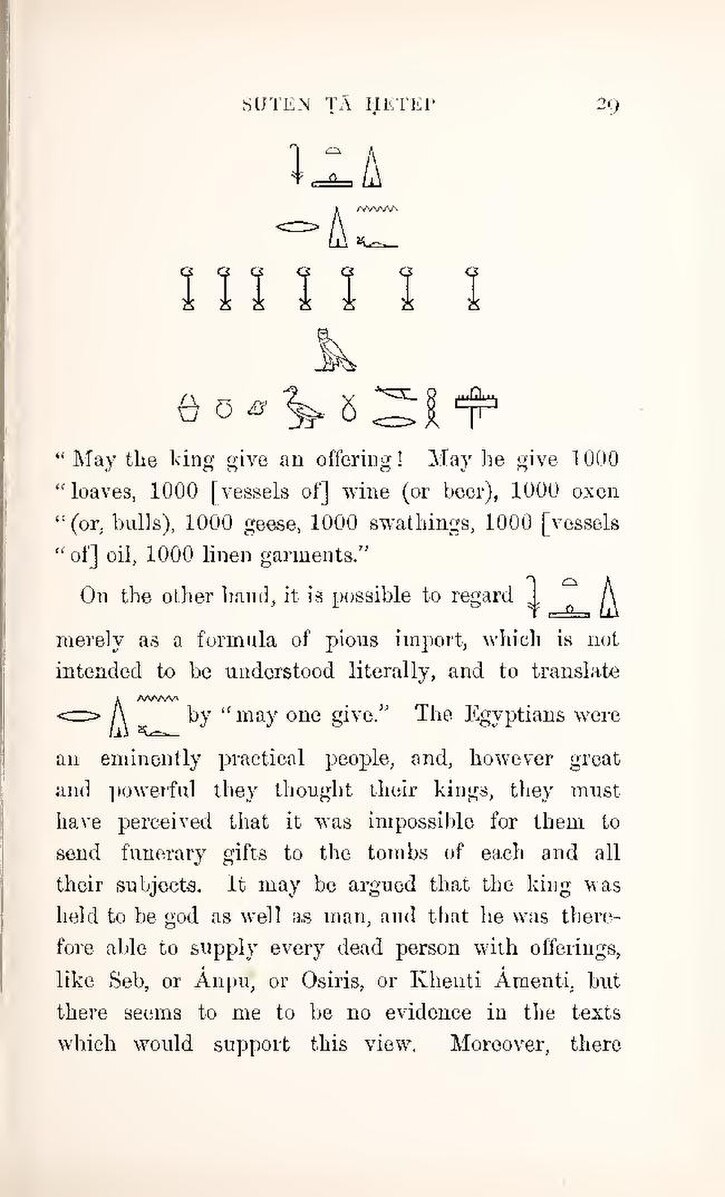"May the king give an offering! May he give 1000 loaves, 1000 [vessels of] wine (or beer), 1000 oxen (or, bulls), 1000 geese, 1000 swathings, 1000 [vessels of] oil, 1000 linen garments."
On the other hand, it is possible to regard
merely as a formula of pious import, which is not intended to be understood literally, and to translate
by "may one give." The Egyptians were an eminently practical people, and, however great and powerful they thought their kings, they must have perceived that it was impossible for them to send funerary gifts to the tombs of each and all their subjects. It may be argued that the king was held to be god as well as man, and that he was therefore able to supply every dead person with offerings, like Seb, or Ȧnpu, or Osiris, or Khenti Ȧmenti, but there seems to me to be no evidence in the texts which would support this view. Moreover, there
